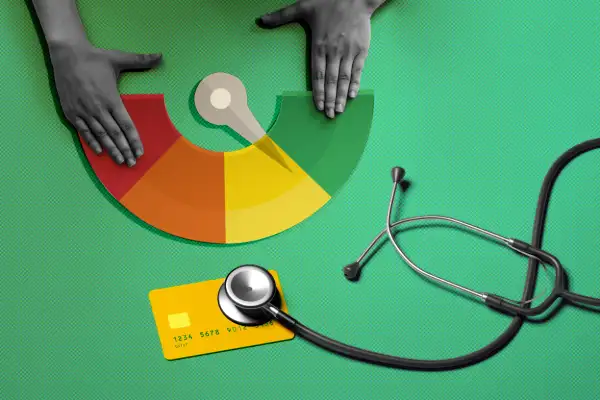Have Medical Debt? Your Credit Score Could Increase Under New Policy

Millions of Americans may soon see their credit scores increase as new federal policies bar lenders and credit reporting companies from holding one’s unpaid medical bills against them.
The Consumer Financial Protection Bureau (CFPB) finalized a rule on Tuesday that bans medical information from being used in lending and credit reporting decisions. The CFPB estimates that 15 million Americans could see their credit scores rise by an average of 20 points once the policy takes effect, which is expected to be in mid-March.
“People who get sick shouldn’t have their financial future upended,” said CFPB Director Rohit Chopra in a news release about the new rule.
In April 2023, the big three credit bureaus — Equifax, Experian and TransUnion — already removed medical debts under $500 from credit reports, in a self-regulatory move that they say wiped out 70% of the medical bills that were plaguing people’s credit.
Still, the CFPB found that about $50 billion of medical debt remained on the credit reports of millions of Americans afterward.
Credit scores and the reports they're based on are commonly used as a way for lenders, landlords and employers to quickly check whether a person is likely to repay their debts. The watchdog agency says that medical debt is a particularly bad predictor of people’s ability to repay a loan because the debt is rarely taken on voluntarily. Medical debt, the agency says, can have lingering and debilitating effects that keep Americans from the loans, housing and even jobs they need to survive.
A 2023 report from the health policy nonprofit Kaiser Family Foundation found that medical debt was a major contributing factor for thousands of Denver residents facing homelessness or housing instability. Later that year, Colorado became the first state to bar medical debt from blemishing residents’ credit reports. California and New York quickly followed suit.
Now, the entire U.S. appears to be following in those states’ footsteps — but the policy may be in jeopardy given that the CFPB announced the new federal rule just weeks before President Joe Biden is set to leave office.
Will Trump keep the medical debt rule in place?
Though the CFPB finalized the rule on Tuesday, it isn’t expected to take effect until 60 days after it is published in the Federal Register — meaning some time in March.
At that point, Biden will be out of office, and President-elect Donald Trump will be in power. This gives Republicans and the Trump administration the ability to reverse the CFPB’s rule before it's enacted.
The crippling consequences of medical debt are widely felt, however, and medical debt is looked upon unfavorably across the political spectrum. According to a 2023 survey from the Pew Research Center, 64% of Americans said the affordability of health care was a “very big problem” in the country today, including 54% of Republican-leaning respondents and 73% of Democrat-leaning respondents.
That said, the rule has already sparked some backlash. While the policies were undergoing the official rulemaking process last year, a group of Republican lawmakers wrote to the CFPB to express “serious concerns” about omitting medical debt from credit reports. They said doing so would provide an incomplete picture of someone’s financial situation, harming financial institutions and ultimately consumers.
Banking trade groups similarly wrote to Chopra and the CFPB voicing their disapproval of the rule.
Even though the three big credit bureaus voluntarily removed medical debt under $500 from credit reports, a handful of industry leaders came out Tuesday against the CFPB’s new rule to remove all such debts from credit reports.
The CFPB “lacks the authority to dictate what can and cannot be included on credit reports,” Dan Smith, CEO of the Consumer Data Industry Association, said in a statement shared with Money. (The CDIA is an industry trade group that represents the big three credit bureaus as well as many other niche credit reporting agencies.)
Some advisors in Trump's orbit are not fans of the CFPB. Multibillionaire Elon Musk is chief among them. Tasked with overseeing the Department of Government Efficiency, or DOGE, Musk recently said he wants to "delete [the] CFPB."
DOGE is not an official government agency, and its recommendations to Trump aren't binding. Also, any creation (or deletion) of government agencies or departments require Congressional approval. Even so, Musk's sentiment could provide a clue as to how Trump will view the CFPB in his second term.
Ultimately, it's not clear how Trump will handle the new medical debt rule, and his transition team did not respond to Money’s request for comment.
More from Money:
A Secret Web of Credit Reports Is Tracking Everything You Do
Is It Even Worth Paying Medical Debt Under $500 if It Doesn't Hurt Your Credit Anymore?
New Medicare Rules Will Make Prescription Drugs a Lot Cheaper in 2025






